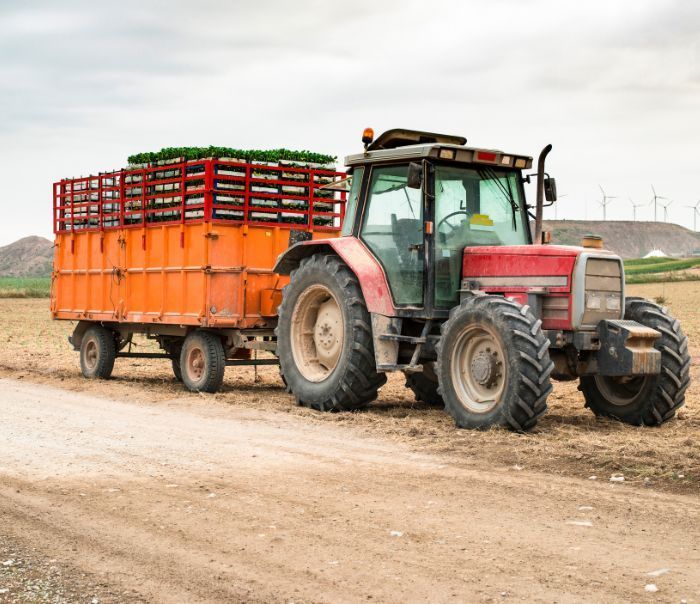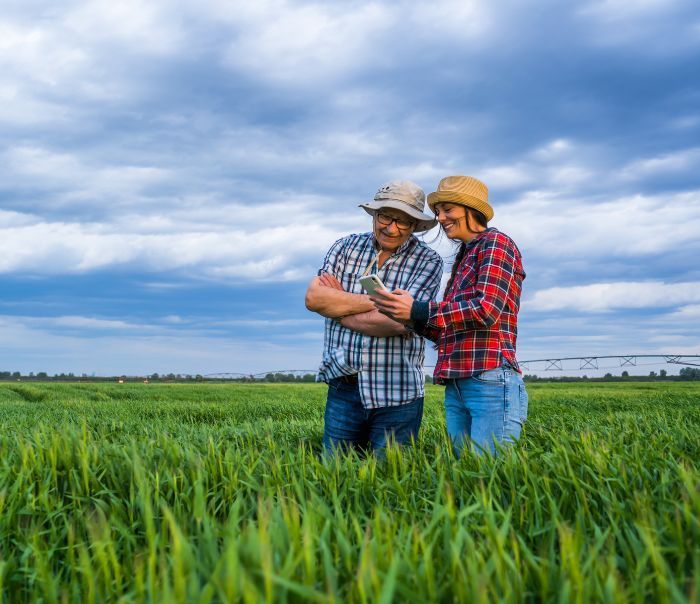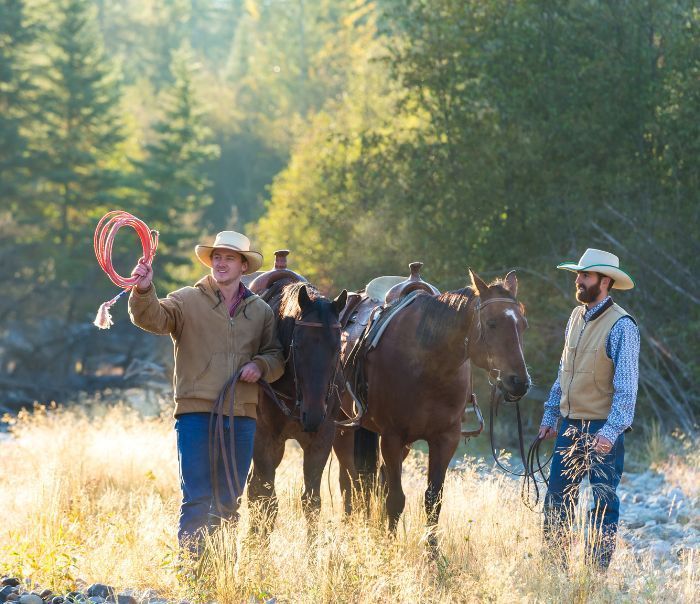Read The Latest News From Us
Is Your Farm Truck Covered Off-Road? What Texas Farmers Need to Know About Commercial Auto Insurance

Is Your Farm Truck Covered Off-Road? What Texas Farmers Need to Know About Commercial Auto Insurance

Understanding Commercial Auto Insurance
Commercial auto insurance is a critical component for any business that relies on vehicles for its operations. For Texas farmers, this type of insurance is especially important, as it not only covers on-road activities but can also extend to off-road use, which is common in agricultural settings. Understanding the nuances of this insurance can help farmers protect their assets and ensure compliance with state regulations.
What is Commercial Auto Insurance?
Commercial auto insurance is designed to cover vehicles used for business purposes. This includes trucks, vans, and other vehicles that transport goods or employees. Unlike personal auto insurance, which is tailored for individual use, commercial policies provide broader coverage options that can be customized to fit the specific needs of a business.
For farmers, commercial auto insurance can cover a variety of vehicles, including those used for transporting crops, livestock, and equipment. It can also provide liability coverage in the event of an accident, protecting the farmer from potential lawsuits and financial losses. Additionally, many commercial policies include coverage for specialized farming vehicles, such as tractors and ATVs, which are essential for daily operations on the farm.
Key Coverage Options
When considering commercial auto insurance, Texas farmers should be aware of several key coverage options. These may include liability coverage, collision coverage, comprehensive coverage, and uninsured/underinsured motorist coverage. Each of these options plays a vital role in safeguarding a farmer's investment.
Liability coverage is perhaps the most crucial, as it protects against claims resulting from injuries or damages caused by the insured vehicle. Collision coverage helps pay for repairs to the farmer's vehicle after an accident, while comprehensive coverage offers protection against non-collision incidents such as theft or natural disasters. Uninsured/underinsured motorist coverage is also essential, as it provides protection if the farmer is involved in an accident with a driver who lacks sufficient insurance. Furthermore, many policies offer optional add-ons, such as roadside assistance and rental reimbursement, which can be invaluable during peak farming seasons when every minute counts.
Importance of Off-Road Coverage
For many Texas farmers, off-road driving is a routine part of their daily operations. Whether navigating through fields or transporting equipment across rugged terrain, having off-road coverage is essential. Not all commercial auto insurance policies automatically include off-road coverage, so it is vital for farmers to verify that their policy encompasses this aspect.
Off-road coverage can protect against damages that occur while operating vehicles on unpaved roads or in agricultural settings. This is particularly important in Texas, where the landscape can vary significantly, and farmers often find themselves in remote areas where traditional insurance may not apply. Additionally, the unpredictable weather conditions in Texas, such as sudden storms or flooding, can create hazardous driving situations that necessitate robust off-road coverage. Farmers should also consider the potential for equipment failure or accidents involving livestock, which can further complicate off-road operations and underscore the need for comprehensive insurance protection.
Assessing Your Coverage Needs
Determining the right amount of coverage for a farm truck can be a complex process. It requires an assessment of the specific risks associated with farming operations, the types of vehicles used, and the geographical area in which the farm is located. Understanding these factors can help farmers make informed decisions about their insurance needs.
Evaluating Vehicle Use
The first step in assessing coverage needs is to evaluate how the vehicles are used. Are they primarily for transporting goods to market, or are they used for off-road activities such as plowing fields or hauling equipment? The more diverse the use of the vehicle, the more comprehensive the insurance coverage should be.
Farmers should also consider the frequency of off-road use. If a truck is regularly used in fields or other unpaved areas, it is crucial to ensure that the insurance policy reflects this usage. This may involve discussing specific needs with an insurance agent who understands the unique challenges faced by Texas farmers. Additionally, it’s important to keep detailed records of vehicle usage, as this information can be invaluable when negotiating coverage options or filing claims. For example, documenting the number of trips made for deliveries versus those made for maintenance tasks can help clarify the risk profile of the vehicle.
Understanding State Requirements
Texas has specific insurance requirements for commercial vehicles, including minimum liability coverage limits. Farmers should familiarize themselves with these regulations to ensure compliance. Failure to meet state requirements can result in fines and other penalties, which can be detrimental to a farming operation.
In addition to state requirements, farmers should also consider any additional coverage that may be beneficial. For instance, if a farm operates in an area prone to natural disasters, comprehensive coverage that includes protection against floods or storms may be necessary. Furthermore, it’s wise to explore options for uninsured or underinsured motorist coverage, especially if farm trucks frequently share the road with larger vehicles or are driven in high-traffic areas. This type of coverage can provide an extra layer of protection against potential accidents that could lead to significant financial losses.
Choosing the Right Insurance Provider
Once the coverage needs have been assessed, the next step is selecting the right insurance provider. This decision can significantly impact the quality of coverage and the overall experience during claims processing. Farmers should take the time to research and compare different providers to find one that meets their specific needs.
Factors to Consider
When evaluating insurance providers, several factors should be taken into account. These include the provider's reputation, customer service, claims handling process, and the availability of specialized agricultural insurance products. A provider with experience in agricultural insurance can offer valuable insights and tailored coverage options that align with the unique needs of farmers.
Additionally, farmers should seek out reviews and testimonials from other customers. This can provide a clearer picture of the provider's reliability and the quality of their service. Engaging with local farming communities can also yield recommendations for reputable insurance providers. Networking with fellow farmers at local agricultural fairs or community events can be an excellent way to gather firsthand experiences and advice on which providers have been most beneficial in times of need.
Getting Quotes and Comparing Policies
After identifying potential insurance providers, farmers should request quotes from multiple companies. This allows for a comparison of coverage options, premiums, and deductibles. It is essential to read the fine print of each policy to understand what is included and what may be excluded.
Farmers should not only focus on the cost of premiums but also consider the value of the coverage being offered. Sometimes, a slightly higher premium can provide significantly better coverage and peace of mind in the event of an accident or loss. Moreover, it is advisable to inquire about any discounts that may be available, such as bundling multiple policies or maintaining a claim-free history, which can further enhance the affordability of comprehensive coverage.
Furthermore, understanding the claims process is crucial. Farmers should ask potential providers about their average claim processing times and the support available during the claims journey. A provider that offers a dedicated claims representative or a user-friendly online claims submission system can make a significant difference when it comes to navigating the often-stressful claims process. This level of support can ensure that farmers receive the assistance they need promptly, allowing them to focus on their farming operations rather than getting bogged down in paperwork.
Common Exclusions in Commercial Auto Insurance
While commercial auto insurance can provide extensive coverage, it is essential to be aware of common exclusions that may apply. Understanding these exclusions can help farmers avoid unexpected gaps in coverage.
Off-Road Exclusions
One of the most significant exclusions that farmers may encounter is off-road use. Some commercial auto insurance policies do not cover vehicles used outside of designated roadways. This can be particularly problematic for farmers who frequently operate their trucks in fields or other unpaved areas.
To mitigate this risk, farmers should specifically request off-road coverage when purchasing their policy. It is crucial to clarify with the insurance provider whether the policy includes protection for off-road activities and under what circumstances coverage may be denied. Additionally, farmers might consider documenting their typical routes and usage patterns, as this information can be beneficial in discussions with insurers. By providing clear evidence of how and where vehicles are used, farmers can better advocate for necessary coverage adjustments.
Personal Use Exclusions
Another common exclusion is personal use of commercial vehicles. If a farmer uses their farm truck for personal errands, this could potentially void certain aspects of the insurance coverage. It is important for farmers to understand the limitations of their policy regarding personal use and to consider purchasing additional coverage if necessary.
Farmers should also be aware that using a commercial vehicle for personal purposes may require a different type of insurance policy. Consulting with an insurance agent can help clarify these distinctions and ensure that all uses of the vehicle are adequately covered. Furthermore, it may be beneficial for farmers to keep a log of vehicle usage, distinguishing between personal and business activities. This not only helps in discussions with insurance providers but also serves as a useful record in case of an accident or claim, ensuring that farmers can substantiate their needs for coverage adjustments based on actual usage patterns.
Tips for Lowering Insurance Costs
Insurance premiums can be a significant expense for farmers, but there are several strategies to help lower costs without sacrificing coverage. Implementing these tips can lead to substantial savings over time.
Bundling Policies
One effective way to reduce insurance costs is by bundling multiple policies with the same provider. Many insurance companies offer discounts for customers who purchase multiple types of coverage, such as commercial auto insurance, property insurance, and liability insurance. This not only simplifies the insurance process but can also lead to significant savings.
Farmers should inquire about bundling options when shopping for insurance and evaluate whether consolidating policies could be beneficial for their operations. Additionally, it’s wise to review the coverage limits and deductibles of each policy to ensure they align with the specific needs of the farm. By tailoring the bundled policies to fit the unique risks associated with farming, farmers can maximize their savings while maintaining adequate protection against potential losses.
Maintaining a Safe Driving Record
Insurance companies often reward safe driving records with lower premiums. Farmers should prioritize safe driving practices and encourage employees to do the same. Implementing training programs and regular safety meetings can help reinforce safe driving habits.
Additionally, maintaining vehicles in good condition can contribute to safer driving and lower insurance costs. Regular maintenance and inspections can prevent accidents and demonstrate to insurers that the farm takes safety seriously. Beyond just vehicle upkeep, farmers can also consider installing safety features such as GPS tracking and collision avoidance systems. These technologies not only enhance safety but can also provide additional discounts on insurance premiums, as they reduce the likelihood of accidents and claims.
Final Thoughts
For Texas farmers, understanding commercial auto insurance is crucial for protecting their operations and ensuring compliance with state regulations. By assessing coverage needs, choosing the right provider, and being aware of common exclusions, farmers can make informed decisions that safeguard their investments. This is particularly important in a state as vast and diverse as Texas, where agricultural practices can vary significantly from one region to another. Whether it’s cattle ranching in the Panhandle or cotton farming in the Gulf Coast, each operation has unique transportation needs that must be addressed through tailored insurance solutions.
As the agricultural landscape continues to evolve, staying informed about insurance options and best practices will be essential for farmers looking to thrive in a competitive environment. With the rise of technology in farming, such as precision agriculture and automated machinery, the need for comprehensive coverage that includes modern vehicles and equipment is more important than ever. Additionally, understanding the implications of climate change on farming operations can help farmers anticipate risks and secure appropriate coverage for potential disruptions. By taking the time to understand the intricacies of commercial auto insurance, Texas farmers can drive their operations forward with confidence, ensuring that they are not only prepared for the challenges of today but also equipped for the opportunities of tomorrow.



